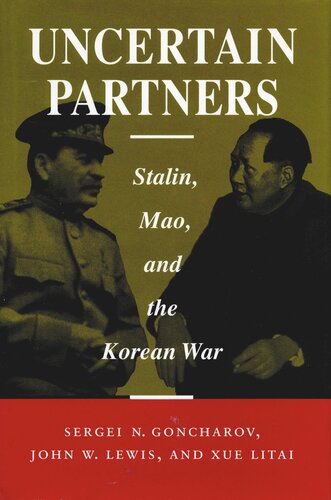

Most ebook files are in PDF format, so you can easily read them using various software such as Foxit Reader or directly on the Google Chrome browser.
Some ebook files are released by publishers in other formats such as .awz, .mobi, .epub, .fb2, etc. You may need to install specific software to read these formats on mobile/PC, such as Calibre.
Please read the tutorial at this link: https://ebookbell.com/faq
We offer FREE conversion to the popular formats you request; however, this may take some time. Therefore, right after payment, please email us, and we will try to provide the service as quickly as possible.
For some exceptional file formats or broken links (if any), please refrain from opening any disputes. Instead, email us first, and we will try to assist within a maximum of 6 hours.
EbookBell Team

0.0
0 reviewsUncertain partners tells for the first time the inside story of the creation of the Sino-Soviet alliance and the origins of the Korean War. Using major new documentary sources, including cables and letters between Mao Zedong and Stalin, and interviews with key Russian, Chinese, and Korean participants, the book focuses on the domestic and foreign policy decision-making in all three countries from 1945 through October 1950. The authors examine the complex relations between Stalin, Chiang Kai-shek, and Mao during the last year of the Chinese civil war and the emergence of the Cold War. They show how the interplay of perceptions, national security policies, and personalities shaped those relations and were used by the North Korean leader Kim Il Sung to win backing for the invasion of South Korea. The authors also examine the Sino-Soviet alliance, drawing on hitherto unknown secret protocols and understandings and the records of high-level planning that led to the invasion and to the Chinese intervention in Korea. The book is illustrated with 42 photographs and two maps and is the fourth volume in the series, Studies in International Security and Arms Control, sponsored by the Center for International Security and Arms Control at Stanford University.